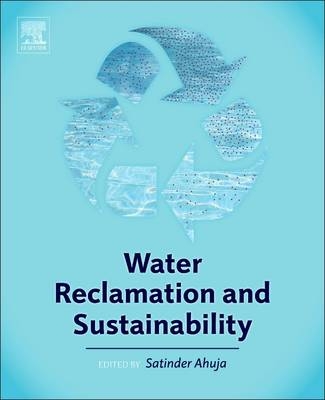
Water Reclamation and Sustainability
Elsevier Science Publishing Co Inc (Verlag)
978-0-12-411645-0 (ISBN)
Satinder Ahuja is a leading expert on water quality improvement. He earned his PhD in analytical chemistry from the University of the Sciences in Philadelphia. He worked for Novartis Corp. in various leadership positions for over 25 years and taught as an adjunct professor at Pace University for over 10 years. As president of Ahuja Consulting, he advises on water quality issues relating to chemicals and pharmaceuticals. A member of the executive committee of the Rivers of the World Foundation (ROW), Dr. Ahuja has organized numerous global symposia on improving water quality, including presentations for the American Chemical Society and UNESCO. Dr. Ahuja has published numerous papers and more than 25 books. His latest books are Contaminants in Our Water (ACS, 2020); Evaluating Water Quality to Prevent Future Disasters (Elsevier, 2019); Advances in Water Purification Techniques (Elsevier, 2019); and Chemistry and Water (Elsevier, 2017).
1. Water Reclamation and Sustainability—Overview 2. Adaptation to Climate Change 3. Green Chemistry Solutions to Water Pollution 4. Characterization of 234U/238U Activity in Navajo Reservation 5. Metallurgical Slag as an Efficient and Economical Adsorbent of Arsenic 6. Addressing Arsenic Mass Poisoning in South Asia with Electrochemical Arsenic Remediation 7. Domestic- and Community-Scale Arsenic-Removal Technologies Suitable for Developing Countries 8. Advances Made In Understanding The Interaction of Ferrate(VI) With Natural Organic Matter in Water 9. Assessment of Copper Slag as a Sustainable Photocatalyst 10. Nitrate as Photocatalyst in the Context of Water Reclamation 11. Water Quality Assessments Using Hydroxyl Radical Probes In Gamma Irradiations 12. Ozone Treatment of Antibiotics in Water 13. Affordable and Sustainable Drinking Water Purification Using Nanomaterials 14. Estimating the Water, Energy And Carbon Footprint of Residential Swimming Pools Treatment Processes 15. Drying of Sludge Through Hydrophobic Membrane 16. Sustainability of Activated Sludge 17. Technological and Serial Frameworks for Engineered Resource Recovery From Human Waste 18. Water Reuse and Recycling
| Sprache | englisch |
|---|---|
| Maße | 191 x 235 mm |
| Gewicht | 950 g |
| Themenwelt | Naturwissenschaften ► Biologie ► Ökologie / Naturschutz |
| Naturwissenschaften ► Chemie ► Analytische Chemie | |
| Technik ► Umwelttechnik / Biotechnologie | |
| ISBN-10 | 0-12-411645-0 / 0124116450 |
| ISBN-13 | 978-0-12-411645-0 / 9780124116450 |
| Zustand | Neuware |
| Haben Sie eine Frage zum Produkt? |
aus dem Bereich


